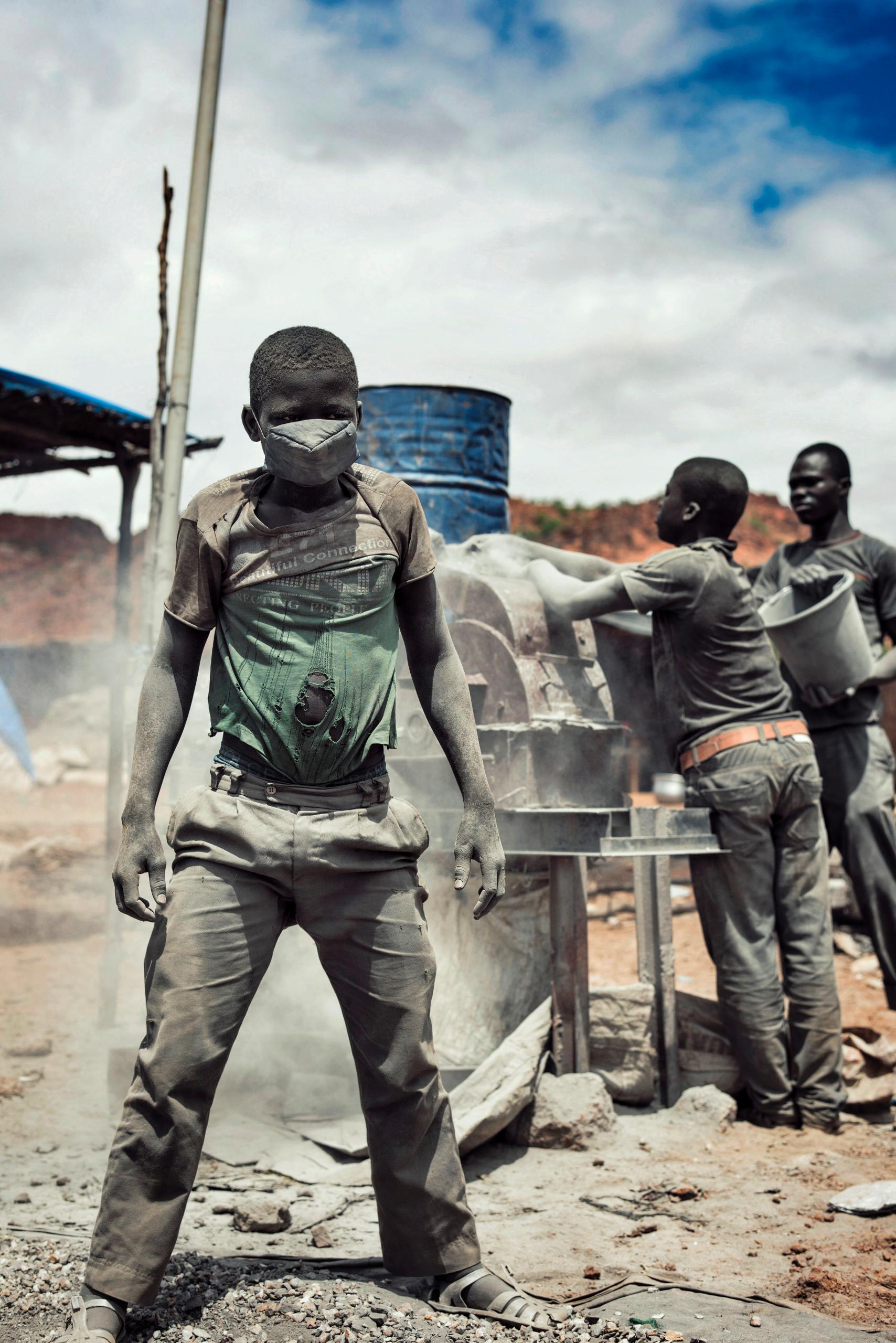NGOs highlight Burkina gold ‘legal void’

Swiss non-governmental organisations have criticised the extraction and importing of gold from Burkina Faso, which they say leads to abusive practices. Swiss gold refiner Metalor rejects the accusations.
A reportExternal link by the Swiss Catholic Lenten FundExternal link and its Protestant counterpart, Bread for All, says 14,000 people in Burkina Faso have been displaced by the work carried out at three gold mines (the Essakane, Bissa and Kalsaka mines). Gold extracted from the mines is later refined in Switzerland, they claim.
Around 70% of the world’s gold, and the totality from the west African state, is refined in Switzerland.
“Switzerland has a major responsibility for the negative consequences resulting from the extraction of this metal,” Dorothea Winkler, in charge of business and human rights issues at the Swiss Catholic Lenten Fund, said on Monday.
Displaced
The authors of the report who visited villages around the three mines said people who had been displaced had lost their entire means of subsistence. Without fertile land, these local villagers are unable to feed their families and fall into debt, the report stated. In Burkina Faso, 83% of the population live from farming.
“The industrial exploitation of gold has done nothing but worsen the quality of life of poor farmers. It’s a curse for these local communities,” Barthélémy Sam, a coordinator for the Swiss Catholic Lenten Fund based in Burkina Faso, told swissinfo.ch. “Contrary to what the exploiters claim, these people are not benefiting from it.”
Sam gave examples of environmental and health problems affecting villagers. “The inhabitants of the new village of Bissa suffer terribly from a lack of water, women in particular,” he said.
“The mining society has admitted it polluted the wells and installed some cisterns, but not enough and this has led to conflicts between the women. Many people, faced with no alternative, go ahead and drink the water polluted by toxic waste from the mine. They show me black spots on their hands and feet and say it’s the ‘gold water’ that’s responsible.”
Artisinal mining
Artisanal mining is no longer possible and mining firms have not employed as many people as initially promised, the report added. In addition, there are issues over access to water, used extensively in the extraction process, and use of cyanide.
The authors said a mining company had also dug a huge crater on sacred land, near the village of Gombo, near the Kalsaka mine in the north of the country.
“Burkina Faso has created a law which is very favourable to mining firms in order to attract them,” Sam said. “The whole thing is discussed between states. And impact studies remain in desk drawers. There is no strong government in Burkina Faso to look into these issues.”
Switzerland’s position
The NGOs criticise Switzerland’s position, which is based on firms’ voluntary measures to ensure respect for human rights abroad. They claim this stance is insufficient, as firms do not assume their responsibilities.
They criticised the Neuchâtel-based firm Metalor, which extracts and refines all Burkina Faso’s gold, saying it does not recognize the problems.
In a statementExternal link published on its website, Metalor rejected the report’s findings, saying it “worked and will continue to work in Burkina Faso in compliance with the law, the standards of recognised international organisations and its internal policies, including but not limited to the full respect of human rights”.

In compliance with the JTI standards
More: SWI swissinfo.ch certified by the Journalism Trust Initiative










You can find an overview of ongoing debates with our journalists here . Please join us!
If you want to start a conversation about a topic raised in this article or want to report factual errors, email us at english@swissinfo.ch.